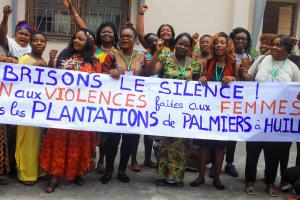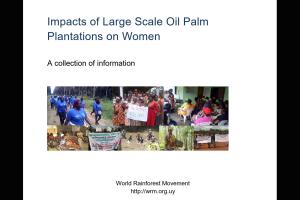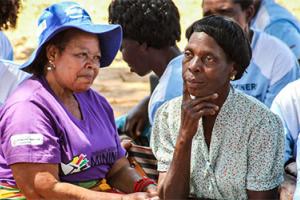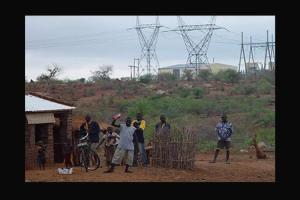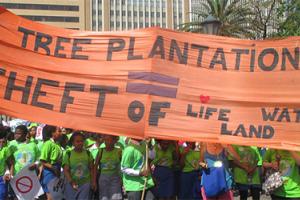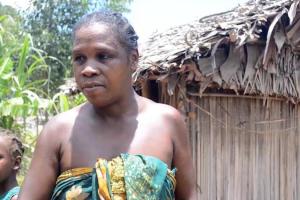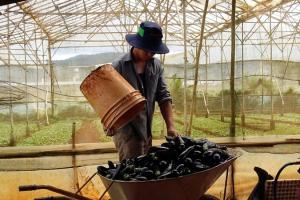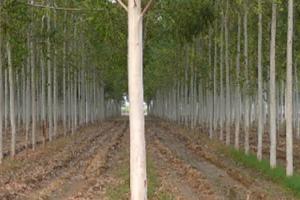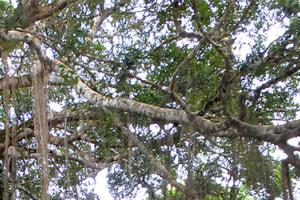On this September 21st, a message of solidarity and homage to the communities, community-based organisations and activists who are fighting in many different ways and places to stop monoculture tree plantations.
Africa (general)
Bulletin articles
26 September 2018
Publications
20 August 2018
A Collection of Articles Published in the WRM Bulletin on the issue of Resistance, Women and the Impacts of Plantations.
Bulletin articles
9 January 2018
In order to better understand peoples' struggles across the southern and eastern regions of Africa, reflecting on its history is crucial. This editorial highlights some parts of this history. And this, of course, is just the tip of the iceberg.
Other information
9 January 2018
The latest issue of the African biodiversity Network (ABN) Newsletter highlights the processes that participants of the 2017 Biennial Partner meeting in Nanyuki, Kenya followed to analyse and reflect upon the actions of the network over the previous two years. The newsletter also includes a reflection on Kenya’s new ban on manufacture, use, importation and sale of plastic bags as well as an article on a primary eco-school in Benin which places endogenous knowledge at the front of education. Access the newsletter (in English) here: http://africanbiodiversity.org/abn-news-07/
Other information
9 January 2018
This briefing, compiled by the World Rainforest Movement (WRM) and the Timberwatch Coalition (TW), is now also available in Swahili. It focuses on various internal and external factors determining changes in the extent of land under industrial tree plantations in 11 eastern and southern African countries: Malawi, Mozambique, Zambia and Zimbabwe; Kenya, Tanzania and Uganda; South Africa, Swaziland and Lesotho; and Madagascar.
Bulletin articles
9 January 2018
The extractivist paradigm in Southern Africa threatens the lives and livelihoods of peasant communities, in particular women and girls: From the Tete Province in Mozambique, where women confront water scarcity and pollution to Zimbabwe’s Marange community, where militarised and often sexualised violence haunts women’s daily lives.
Bulletin articles
9 January 2018
The Programme of Infrastructure Development for Africa (PIDA) was adopted in 2012 with the aim of connecting the continent’s energy, transport, water and communication infrastructure. But what kind of infrastructure does “Africa” really need and who is getting more access with such initiative? This article looks into the hydropower dams proposed for PIDA
Bulletin articles
9 January 2018
This article gives an overview on the industrial tree plantation expansion threat in eastern and southern African countries, its external drivers, as well as the challenges this expansion presents to affected communities struggling to defend their land and livelihoods.
Other information
23 August 2017
The Ambatovy mine, a massive operation of eight billion US-dollars (in today's value), is designed to extract nickel and cobalt from Madagascar’s rich soil. It has directly affected a forest of 2,500 hectares and some households were displaced as a result of controversial compensation agreements that divided the community. Besides many complaints over impacts on the local environment, in 2012, a malfunctioning valve caused a sulphur dioxide leak, and 50 people at the facility were poisoned. Three similar incidents have happened since.
Other information
6 April 2017
The world's largest agribusiness corporations are rolling out a public-private partnership programme to take control of food and farming in the Global South. The programme is called Grow, and it is part of the "New Vision for Agriculture", an initiative of the World Economic Forum (WEF) that was launched in 2009 and is led by 31 of the WEF's "partner" companies involved in the food business.
Bulletin articles
7 February 2017
Years before governments adopted the Paris Agreement, international initiatives promising millions of hectares of reforestation and forest restoration were launched, supposedly to benefit the environment and local communities. Yet, not one example of reforestation at scale exists that has achieved the promised benefits for communities and the environment.
Bulletin articles
7 February 2017
In December 2015, the Paris Agreement was celebrated with great fanfare. This agreement, part of the United Nations Framework Convention on Climate Change (UNFCCC), establishes new measures to reduce Greenhouse Gas Emissions, which are responsible for global warming.
